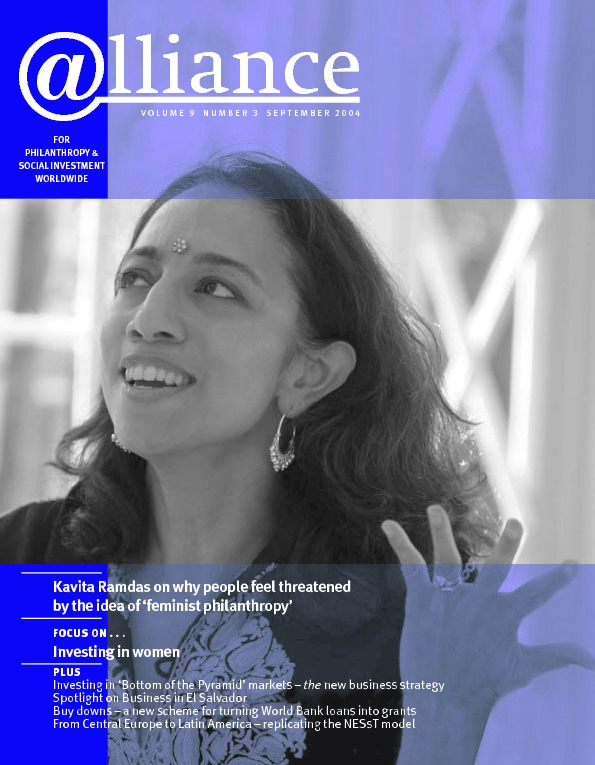‘The popular image of Justice is a blindfolded woman with a weighing balance,’ recounted Ambassador Howard Dee, a noted Filipino social leader, philosopher and foundation leader. ‘Social justice, in my view,’ he continued, ‘is when the Lady removes her blindfold and, seeing the reality of human inequality, tilts her scales in favour of the many poor who have neither equity nor equality of opportunity to bring back equilibrium in the social order.’
Ambassador Dee’s provocative remarks opened the fifth annual meeting of the Synergos Institute’s Senior Fellows,[1] an international network of experienced foundation leaders from 25 countries. This took place on 11-14 July in Antipolo City, Philippines and brought together 42 foundation directors, mostly from Asia, Africa and Latin America. Co-hosted by the Association of Foundations (Philippines), the gathering explored how foundations can help rebalance the scales of justice by creating opportunities for poor or historically marginalized communities to acquire assets such as land, housing, businesses, or the natural environment.
Foundation leaders from India to Indonesia, from Slovakia to South Africa, described different ways foundations can capitalize on their position as resource providers and their broad reach across societies to stimulate asset-building. Oddly enough, in a room full of grantmakers talk seldom turned to grantmaking. We learned that to create assets, foundations are leveraging far more than financial resources. Many are proactively building coalitions and alliances, engaging the market in creative ways, and bringing political pressure to bear when needed.
Len le Roux (Rössing Foundation), described how community conservancies have created a sustainable basis for social development and environmental preservation in Namibia. The conservancies provide communities with secure rights to common land areas. Community organizations manage the land and derive income from concessions for tourism, hunting or other uses. This creates a local vested interest in protecting wildlife and natural resources for future generations. ‘This is not patronage, not welfare, but ownership,’ said le Roux. Resulting from the coordinated efforts of 12 NGO support organizations, the Government of Namibia, and some 50 community-based organizations, the conservancies involve more than 39,000 people and 4 million hectares of land. ‘We sought to create institutions capable of maximizing economic value as well as social and/or environmental value,’ commented le Roux.
Oceans away in the Philippines, social leaders found another creative way to harness the market for social benefit. Led by Marissa Reyes (Philippine Center for Population and Development), a broad coalition of NGOs came together to raise development funds through a zero coupon bond issue. ‘If a company wants to expand its operations and does not want to borrow from the bank, how does it raise capital?’ Reyes asked herself. ‘The answer I got from businessmen friends was “The company floats bonds”. This was my “A-HA” moment,’ said Reyes. Working closely with business and government, the coalition succeeded in raising about $20 million from what came to be known as PEACe bonds.[2] Proceeds from the bonds have endowed the Peace and Equity Foundation, which now works with poor communities across the Philippines.[3]
People emphasized that building assets that benefit the poor is ultimately a political exercise, requiring foundations to engage government and inform public policy. ‘There is no way we can talk about the economic without bringing in the political,’ said Solita Monsod, Professor of Economics at University of the Philippines. ‘We must exercise countervailing power on business and lobby groups.’ Elkanah Odembo (Ufadhili – the Centre for Philanthropy and Social Responsibility, Nairobi), agreed that asset and wealth creation for the poor is a question of reforming institutions and policy. ‘This can only be done by applying pressure where pressure needs to be applied,’ he said. Abdi Suryaningati (Yapikka – the Indonesian Civil Society Alliance for Democracy) has been applying pressure by using mass media and advocacy efforts to link local initiatives with the national political arena. Yapikka has worked with partners across Indonesia on draft bills on local autonomy and mass-based organizations which will help create the legal infrastructure for community-owned development.
Around the world, we can see examples of foundations using creativity, relationships, partnerships, market know-how and political savvy to build assets for the future. Lady Justice, are you peeking?
1 The 2004 Synergos Senior Fellows meeting was made possible through the generous support of the Ford Foundation, Mott Foundation, Open Society Institute, Himalaya Foundation, Mirant Foundation and the Lopez family.
2 In full, Poverty Eradication and Alleviation Certificates.
3 The Foundation recently supported housing development using compressed earth blocks and is providing seed capital to micro, small and medium-sized enterprises in some of the poorest regions of the country.
John Heller is Deputy Director, Global Program Services, at the Synergos Institute. He can be contacted at JHeller@synergos.org






Comments (0)